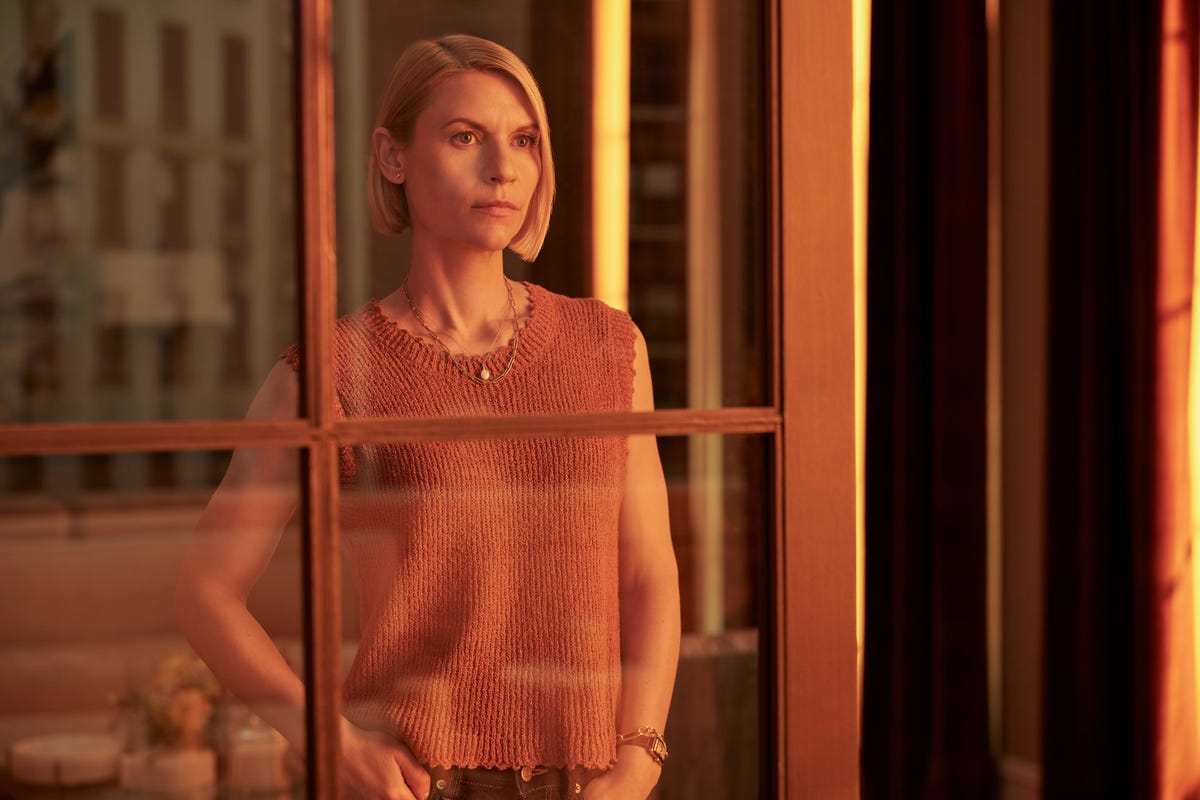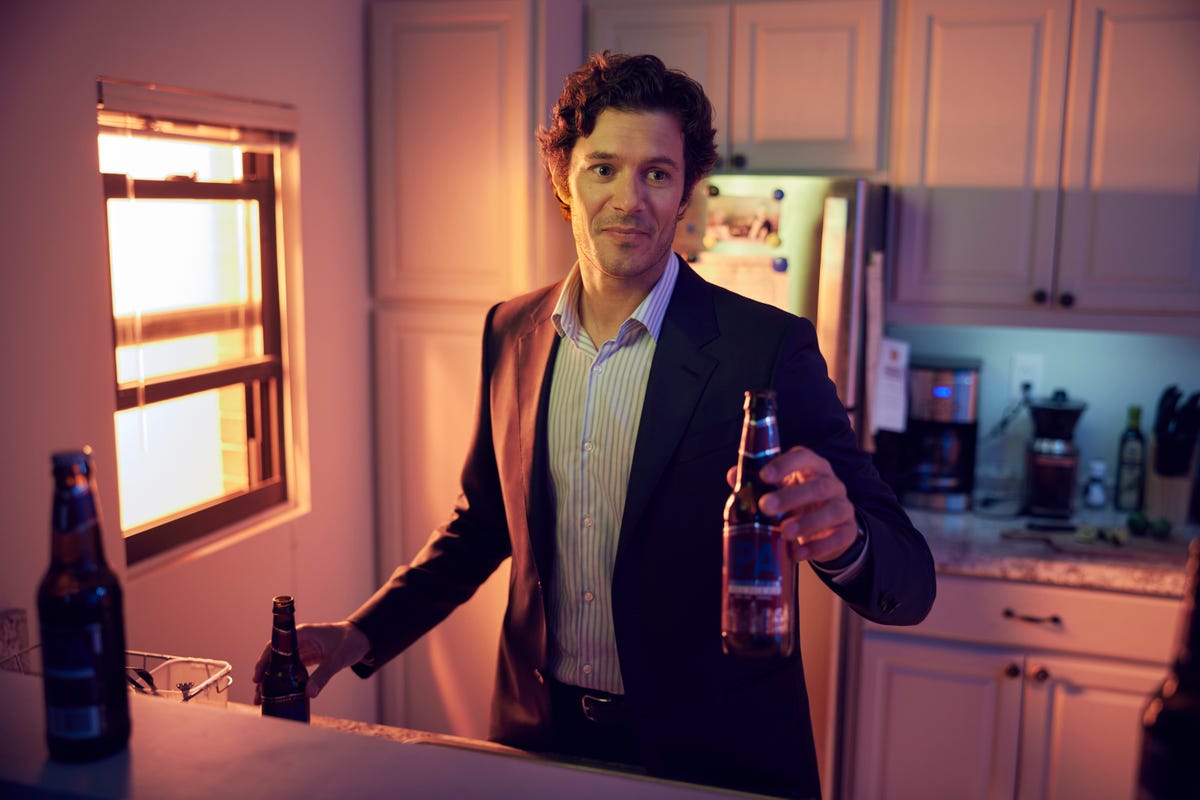If Gone Girl were given the recut-trailer treatment in the style of a Woody Allen film, it’d probably look a lot like Fleishman Is In Trouble. The smartnew upstream limited series, based on Taffy Brodesser-Akner’s novel of the same name, premieres Nov. 17. It’s got the failed marriage, the sad sack of 40-something white man and, most importantly, the missing wife. But it’s also filled with anxious, neurotic New York Jews, philosophical walk-and-talks, money and sex. Lots of sex.
Toby Fleishman (Jesse Eisenberg) is a newly divorced liver doctor with two kids who kinda hate him and a bachelor pad that’s fairly realistic in its coldness (complete with a broken set of vertical blinds). Despite his sad-sackery, Toby’s status is on the rise. on”the apps“at least.
Read more: 8 Helpful Hulu Tricks You Probably Aren’t Using and Netflix vs. Hulu: Which Has the Best Price, Original Shows and Movies?
Formerly unlucky in love, with an undiagnosed eating disorder and a chip on his shoulder that both predate his marriage, Toby can’t believe his newfound social capital as a middle-aged divorcee within the likes of Tinder, a universe that doesn’t exist last time he was on the market. Suddenly he’s drowning in sexts from available single women who send photos of “their side boob, or their underboob, or their just plain regular boob,” says the show’s very opinionated narrator.
The identity of the narrator, at least to those who haven’t read the book, is a bit of a spoiler. But the TV adaptation gives it away halfway through episode 1, and even sooner if you recognize Lizzy Caplan’s sardonic lilt. Caplan plays Toby’s college-era friend Libby, a prematurely retired journalist, a reluctant Jersey stay-at-home-mom and a bit of a sad sack herself. Libby’s got her own set of issues, the show hints.

Lizzy Caplan as Toby’s friend Libby, also the show’s sardonic narrator.
Linda Kallerus/FX
Toby is reconnecting with his college friends — the trio rounded out by Adam Brody playing another charming Seth — whom he hasn’t seen much since getting married. At first glance, Toby’s ex-wife, ladder-climbing talent agent Rachel Fleishman (played by Claire Danes in a power suit), is the clear villain. She’s got the blunt bob of a careerist virago and a low-boiling grudge, kindled by the typical anxieties of the Upper East Side upstart, plus too many emails to respond to. But the show’s interest in first glances is only to the extent they can be subverted. Things aren’t what they seem.
When we meet Toby, Rachel has just unexpectedly skipped town for a yoga retreat, leaving Toby to care for both kids. (“I have to secure my oxygen mask, you know? Before theirs,” she says.) The minor inconvenience slowly builds to dread as Rachel misses phone calls, texts and kid pickup, and Toby realizes she’s actually, perhaps, gone missing. “Yes, she was a terrible person,” Libby narrates as Toby begins to panic, “but bad things happen to terrible people too.”

Claire Danes’ Rachel has the right haircut for a villain, but things aren’t quite that simple.
Matthias Clamer/FX
At times, Libby’s stream-of-consciousness voiceover is distracting, making the scenes feel like documentary reenactments. But Libby’s perspective is also a welcome antidote to Toby’s general “my ex is crazy” vibe, which is likely to dampen most viewers’ sympathies. The first two episodes may try the limits of your patience for the rich-white-maleness of it all. But you’ll be rewarded if you make it to episode 3.
Like Gone Girl, and other Rashomon-style marriage stories that delight and indict the audience by pulling the rug out (Lauren Groff’s Fates and FuriesHBO’s Scenes From a Marriage), Fleishman’s swinging fulcrum, a single line delivered by the always excellent J. Smith Cameron as Toby’s divorce lawyer, will make you sit up in your chair and say “oh, damn…” The show’s title, overlaid on an upside-down NYC skyline, doesn’t specify which Fleishman is in trouble, after all.
The mystery of Rachel’s whereabouts is less of a driving plot and more of an excuse to examine how two people looking in the same direction can see such different views. If you’re hoping for intrigue, stick with Gone Girl. But Hulu’s adaptation is thrilling in other, more literary ways, thanks to Brodesser-Akner executive producing and writing all but one episode.

Adam Brody is Toby’s other college friend, Seth, whose love life has always been more successful than Toby’s.
Matthias Clamer/FX
The novel, so interior and so cerebral, seemed at first an odd choice for the streaming TV treatment. But somehow the show pulls it off, giving the viewer that same joy of picking up what an astute writer’s putting down. The ever regenerative liver, Toby’s medical specialty, is a recurring motif. His son’s science project also becomes a theme generator, with forays into relativity and block universe theory that signal the series’ more highbrow aspirations and give the show the opportunity to introduce fantastical visual effects, reminiscent of HBO Max’s highly literary Station Eleven adaptation.
The novelesque elements, if at times a little on the nose — er, liver — mostly work. (Even the oxygen mask analogy manages to transcend its own cliche with a clever mid-season callback.) And the shrewd television adaptation achieves the same balancing act that was its source material’s major triumph, re-creating the novel’s deliciously slow recalibration of allegiance. You just have to stick around long enough to see it happen.
2022’s Best TV Shows You Can’t Miss on Netflix, HBO, Disney Plus and More
See all photos
